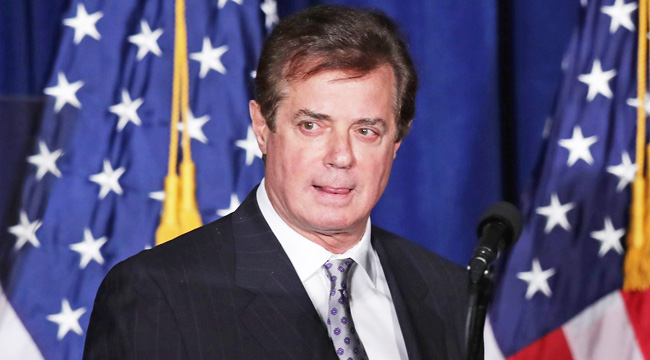
On Monday, Sean Spicer reacted poorly to FBI Director James Comey’s public confirmation that the FBI is digging into alleged ties between the Trump campaign and Russia. Spicey attempted to distance the campaign from ousted National Security Advisor Gen. Michael Flynn (by calling him “a volunteer”). Even more outrageously, he claimed that former Campaign Chair Paul Manafort only played a “very limited” role for a short time (which was actually from March – August 2016). This brazen propaganda led some to wonder what Trump was worried about, especially concerning Manafort, who is no stranger to shady moves with foreign powers.
This is especially the case because Manafort left the Trump campaign after his name appeared in a secret ledger of Ukraine funds, which arrived with accusations that he tried to influence U.S. opinions on Russia years ago (on behalf of former Ukraine President Viktor F. Yanukovych). As if on cue, the New York Times has published accusations from a Ukrainian lawmaker, who claims that Manafort laundered a substantial chunk of the ledger money:
On Monday, the intrigue took another turn, when a member of Parliament in Ukraine released documents that he said showed that Mr. Manafort took steps to hide the payments, which were tied to Mr. Manafort’s work for former President Viktor F. Yanukovych. The documents included an invoice that appeared to show $750,000 funneled through an offshore account and disguised as payment for computers.
Mr. Manafort, who denied the latest allegations, has asserted that the ledger is a forgery and that the member of Parliament, Serhiy A. Leshchenko, was involved in a scheme to blackmail him. Mr. Leshchenko insists that a letter appearing to show him threatening Mr. Manafort with the release of damaging information was itself a fake, and he denies any involvement in blackmail.
The $750,000 amount is officially listed as sale of computers, according to an invoice that Leshchenko dropped on Monday night. He says the invoice came from Manafort’s old office in the Ukranian capital of Kiev. Leshchenko even gave a news conference on the matter:
Leshchenko alleges that Manafort falsified an invoice to the Belize company to legitimize the $750,000 payment to himself.
“I have found during this investigation that [Manafort] used offshore jurisdictions and falsified invoices to get money from the corrupt Ukrainian leader,” Leshchenko said during a news conference in downtown Kiev, where he provided a copy of the invoice to journalists.
The dollar amount also corresponds to one of 20+ entries that finger Manafort in the aforementioned secret ledger. The entries reportedly total $12.7 million paid (over the course of a decade) on behalf of pro-Russian political organizations within the Ukraine. And after Manafort was given his walking papers (thanks to Ukranian anticorruption authorities), he somehow wound up becoming the Trump campaign chairman. It must be noted that Manafort is not currently under criminal investigation in Ukraine, although authorities are looking into the ledger as a whole. Leshchenko declined to comment on whether he’d spoken to U.S. law enforcement about the invoice or the ledger.
The timing here is all open for interpretation. Spicer clearly wanted to place distance between the Trump campaign and Manafort, which is difficult because the dude still owns real estate in Trump Tower. In fact, he’s taken out over $19 million in home-equity loans on that property and a few others in New York City. What on earth are we going to soon hear about Paul Manafort?
P.S. Some disturbing (and unsubstantiated) hacked text messages between Paul Manafort’s daughters are circulating. One daughter purportedly refers to him as having “no moral or legal compass.” The term “blood money” also appears within the messages, and it’s all kinda scary, if true.
(Via New York Times, Washington Post & The Intercept)
